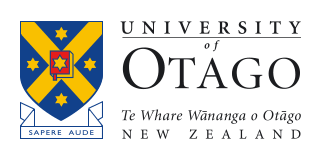What is The Junior Mathematics Competition?
This competition for students in years 9 to 11 (forms 3 to 5) was initiated in 1985 by Professor Derek Holton of the University of Otago Mathematics and Statistics Department, shortly after his appointment. The competition is administered by a manager from within the Department. Other members of the Department help by writing questions, marking them, and determining the winners.
The National Bank sponsored the competition from 1985 to 2010 inclusive, providing cash prizes for the top students and Merit Certificates for about fifteen percent of the participants at each level. Apparently this competition was the longest running sponsorship activity which The National Bank had been involved in. Now The University of Otago itself generously provides sponsorship of the prizes.
Who is eligible to enter?
Anyone who is enrolled in years 9 to 11 in a New Zealand school in a particular year is eligible to enter the competition for that year. Note that it is the overall school year that determines eligibility, and not the year level for which a student is taking Mathematics. For example a year 11 student studying year 13 mathematics (or even University mathematics) is still eligible to enter. As another example a Year 9 student in an 'extension' Year 11 class enters the competition at the Year 9 level, not Year 11. PLEASE INFORM ALL SUCH STUDENTS TO ENTER AT THEIR SCHOOL YEAR LEVEL, not the 'extension' class year.
At this time the competition is restricted to students enrolled in New Zealand schools. (Students not permanently resident in New Zealand but enrolled in a New Zealand school at years 9 to 11 are eligible to enter.) We have no plans yet to let participants from overseas schools enter at this time.
Younger pupils (those in school years lower than 9) enter as 'honorary' Year 9 students each year.
Format of the First Part of the Competition
Students will have 50 minutes to answer a range of multiple choice and short answer questions. Answers will be submitted electronically on a provided web page. Students may answer all questions that are presented to them.
Sample questions similar to those that may be asked in the first part of the competition can be downloaded in PDF:
Answers for the sample questions have yet to be prepared.
Format of the Second Part of the Competition
Note the change from 2018.
Students have 50 minutes to answer six questions out of eight. Strong emphasis is placed on their ability to write down good mathematical explanations for their answers.
Q1: 10 marks. Year 9 and below only.
Q2: 10 marks. Year 10 and below only.
Q3 to Q6: 20 marks each. All students.
Q7: 10 marks. Years 10 and 11 only.
Q8: 10 marks. Year 11 only.
Generally speaking the level of mathematics required to do any particular problem should be available to most participants. Naturally, to help sort out the prize winners some of the problems are reasonably difficult. But there are also problems which will be accessible to students of average ability. Well presented work on these problems will often be enough to obtain a Merit Certificate. (Anybody who answers more than three questions fairly well should be eligible for a Merit Certificate during most years.)
Topics in these questions cover a wide spectrum of the Mathematics Curriculum, although there is almost always a logic problem and a geometry problem.
Details of collections of questions
Awards and Prizes
At each level there will be a first prize of $300, a second prize of $250, a third prize of $200, and 27 outstanding awards of $50. Certificates are also awarded for Top 100 and Top 200 placings. In addition, Certificates of Distinction will be awarded to approximately the top 15% of students at each level, and Certificates of Merit will be awarded to approximately the top 50% of students at each level.
Cost of the Competition
The cost of the competition for 2024 is $5 per student (this covers both parts of the competition for those invited to sit the second part).
Payment should be on line. Details will be on the Initial Invitation.
Student Names
This year we hope to enter student names into our database automatically during the sitting of the first part of the competition. After the first part of the competition has been sat but before we announce the results of that part we will give schools a small window of opportunity to verify names and year levels.


